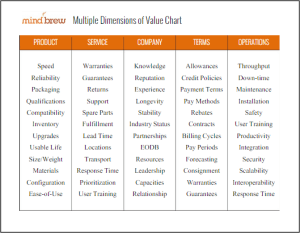When you work on a Sales Ops team, it’s pretty natural to assume that your team will have complete control over sales ops. After all, other teams in the company generally have the ultimate authority over their job function. The accounting team is responsible for accounting. The manufacturing team manages the manufacturing process. The fulfillment team has complete control over the shipping of products. Each of these teams is expected to handle their work on their own without outside interference. And in general, you just don’t see salespeople or marketing people or executives filling out spreadsheets or working on the production line or putting products into boxes.
But Sales Ops is different.
Sales Ops is a newer function in most organizations, and the team just doesn’t have as much control over the process. The sales team, the marketing team, the product team, the executives, and half a dozen other groups in the organization are probably used to having input into the variety of processes that sales ops manages. And if you want to change those processes, every one of those teams is going to have something to say about it.
And that reality can be tremendously frustrating.
If you make it your job to control every aspect of your organization’s sales process, you will be constantly stymied by other people within your company. It’s a recipe for high stress, quick burnout, and possibly even a mental breakdown.
As much as we would like to offer you one, there really is no “easy answer” to this problem. You are always going to have to corral other departments and persuade difficult personalities to do things your way.
However, we do have a “trick” that can reduce the frustration you experience by about 90%.
Intrigued?
Yeah, we thought that would get your attention. If you’ve spent any time in therapy at all, you know that it’s pointless to try to control other people. You can only control yourself and your reactions to other people.
With that in mind, we suggest changing your perspective on your job.
Instead of considering it your responsibility to “own sales processes,” try viewing yourself as an internal sales consultant.
This framework is valuable for several different reasons. First, it’s a better match for the realities of your situation. You don’t really control the process—you can only influence it, much like a consultant would.
Second, it will help direction your attention to the things that are most important. Consultants don’t come in and handle busywork—they focus on big improvements that can yield bottom line results. And they don’t limit themselves to one particular area. If they see something that can be fixed, they offer suggestions—no matter who it involves.
Last, and probably most significantly, being a consultant allows you to keep some of the day-to-day squabbles at arm’s length. If the sales team or the executive team doesn’t take your advice—that’s their loss. You don’t have to take it personally.
We delve into this idea in a lot more depth in the Being An Internal Sales Consultant webinar. It shares how other Sales Ops teams have used this construct very effectively, helping them achieve better results for their employers, as well as more personal satisfaction.
And you know, consultants have one more characteristic that sets them apart from other employees: they are almost always more highly paid. Cultivating this mindset can make you more valuable to the company and set you on the road to greater career success.
Give it a try, and let us know how it goes. We expect that you’ll be surprised by how invaluable this simple technique can be.












